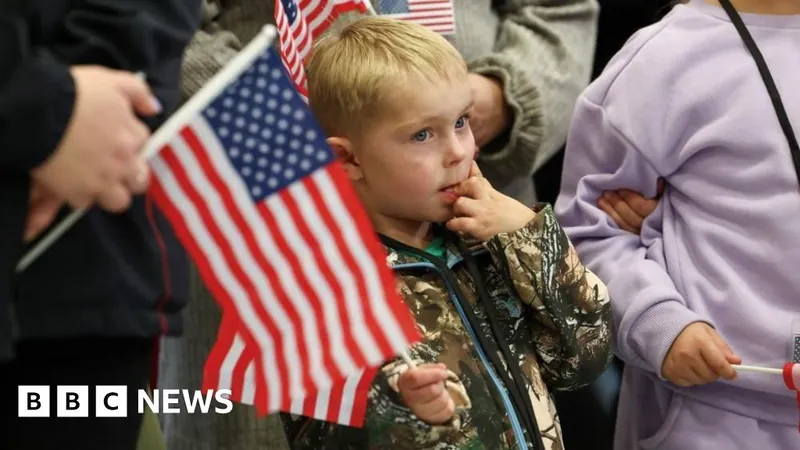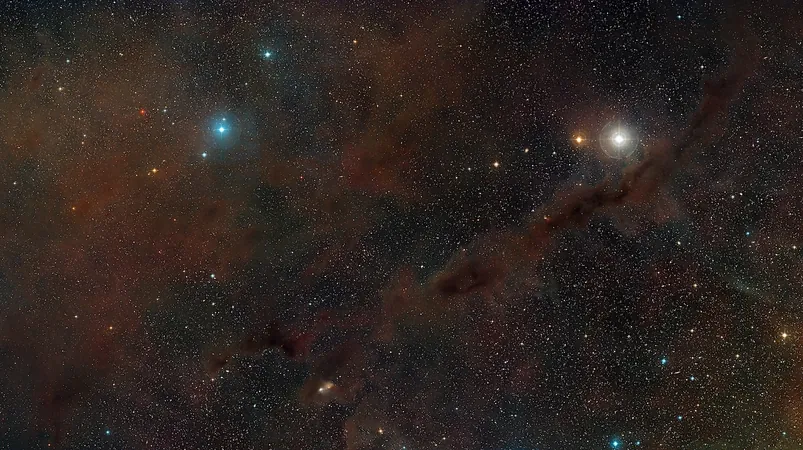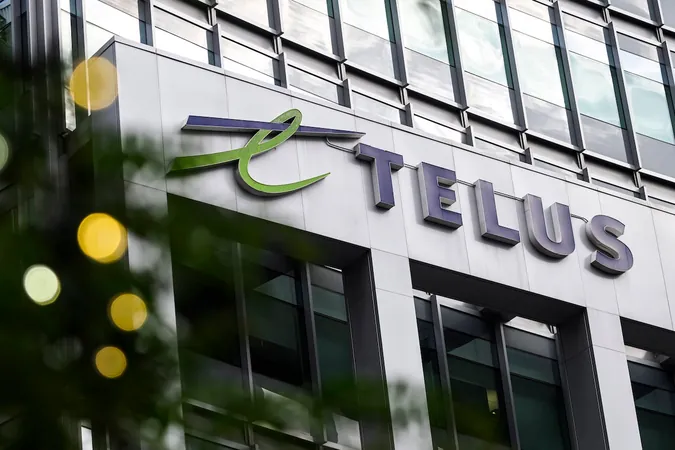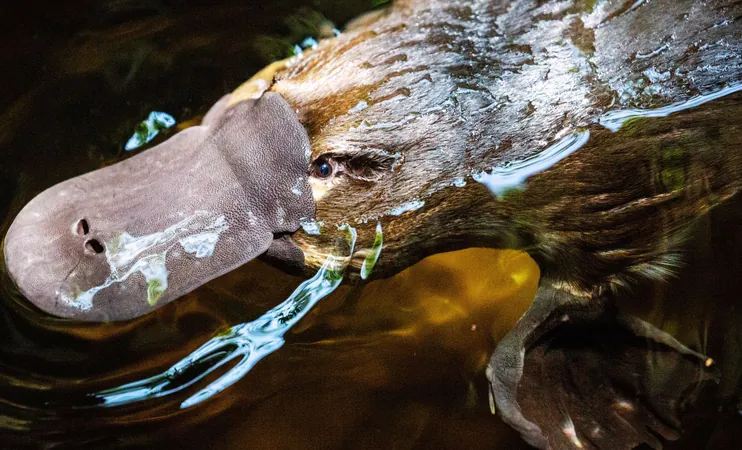
Is There Really a Genocide of White South Africans? Trump's Controversial Claims Unpacked
2025-05-15
Author: Liam
Are White South Africans Under Threat?
In a provocative statement, former President Donald Trump has stirred the pot by suggesting that white South Africans are facing genocide. This claim emerged as nearly 60 members of the Afrikaner community were granted refugee status in the United States.
The Role of the Afrikaners
The Afrikaners, a unique cultural group descended mainly from 17th-century Dutch, German, and French settlers, have a complex history in South Africa. Known as Boers, or farmers, they have long been associated with agriculture. However, their roots in the land came at a significant cost to the region's black population, as they were forcibly displaced to establish their communities.
A Legacy of Apartheid
The apartheid era, initiated by the Afrikaners in 1948, institutionalized racial segregation through draconian laws that isolated black South Africans from economic opportunities and decent education. With the fall of apartheid in 1994, the political landscape dramatically shifted when Nelson Mandela and the ANC came to power.
Are There Grounds for Genocide Claims?
Despite Trump's alarming declarations, no mainstream South African political party has corroborated claims of genocide. These assertions have been fueled by violence against white farmers, yet a recent court ruling dismissed such claims as "clearly imagined." In the last recorded quarter, South Africa registered 6,953 murders, but only 12 involved farm attacks.
What Trump and Musk Are Saying
Trump has justified granting refugee status to Afrikaners by claiming that they are being brutally killed and losing their land. This narrative of impending doom puts doubt on his potential participation in upcoming global events in South Africa. In contrast, President Cyril Ramaphosa has labeled Trump's claims as utterly false, asserting that those leaving are reluctant to adapt to the evolving society.
The Controversy Over Land Ownership
As Trump’s advisor, Elon Musk has also voiced concerns about South Africa's "racist ownership laws," claiming they hinder his satellite service from operating in the country. These regulations are a legacy of apartheid aimed at addressing past injustices, yet they have drawn criticism from political opponents concerned about property rights.
Inflammatory Rhetoric and Its Consequences
The political landscape is rife with tension, especially with inflammatory songs like "Shoot the Boer" sung by EFF leader Julius Malema at rallies. While deemed provocative, courts have ruled such expressions remain protected under free speech principles. Former President Thabo Mbeki has even urged Malema to move past these lyrics, reflecting a desire for healing in a divided nation.
Are Most Afrikaners Leaving?
Despite the headlines, a majority of Afrikaners seem committed to staying in South Africa. Recent data indicates that only about 70,000 out of 2.5 million Afrikaners have shown interest in emigrating, raising questions about the veracity of the genocide narrative. The U.S. embassy recently clarified that resettlement eligibility applies to all racial minorities facing past or future persecution.
Conclusion: A Divided Nation in a New Era
The conversation around white South Africans, particularly Afrikaners, is a complex one, shaped by historical grievances and current socio-political dynamics. While some may seek refuge abroad, many remain determined to build their futures within South Africa's borders. As attitudes and policies continue to evolve, the nation wrestles with its past, charting a course toward reconciliation and unity.









 Brasil (PT)
Brasil (PT)
 Canada (EN)
Canada (EN)
 Chile (ES)
Chile (ES)
 Česko (CS)
Česko (CS)
 대한민국 (KO)
대한민국 (KO)
 España (ES)
España (ES)
 France (FR)
France (FR)
 Hong Kong (EN)
Hong Kong (EN)
 Italia (IT)
Italia (IT)
 日本 (JA)
日本 (JA)
 Magyarország (HU)
Magyarország (HU)
 Norge (NO)
Norge (NO)
 Polska (PL)
Polska (PL)
 Schweiz (DE)
Schweiz (DE)
 Singapore (EN)
Singapore (EN)
 Sverige (SV)
Sverige (SV)
 Suomi (FI)
Suomi (FI)
 Türkiye (TR)
Türkiye (TR)
 الإمارات العربية المتحدة (AR)
الإمارات العربية المتحدة (AR)